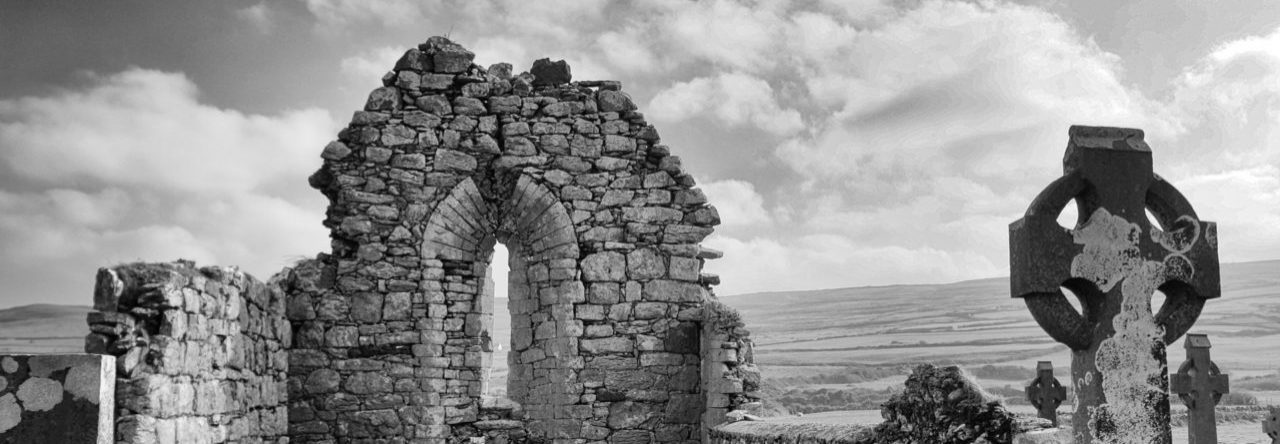“My fundamental interest, I suppose,” wrote Algernon Blackwood, “is signs and proofs of other powers that lie hidden in us all; the extension, in other words, of human faculty. Blackwood’s exploration of these “signs and proofs” in his gothic tales and weird fiction won the admiration of his contemporaries and the praise of modern critics. H. P. Lovecraft wrote, “Of the quality of Mr. Blackwood’s genius there can be no dispute; for no one has even approached the skill, seriousness, and minute fidelity with which he records the overtones of strangeness in ordinary things and experiences, or the preternatural insight with which he builds up detail by detail the complete sensations and perceptions leading from reality into supernormal life or vision.” More recently, Pulitzer Prize winner Michael Dirda, writing for the New York Review of Books, stated that “Blackwood himself is, arguably, the central figure in the British supernatural literature of the twentieth century.”
Though Blackwood would enjoy critical acclaim and rise to worldwide fame, little of his genius was evident in his early life. He was a middling student, a failed dairy farmer and businessman, and a journalist of no great reputation. Blackwood took his first steps on the path to fame when his fascination with the supernatural inspired the publication of a collection of short stories entitled “The Empty House and other Ghost Stories.” His skillful interweaving of nature and the supernatural, and his refined prose found a large, receptive audience.
Blackwood spent much of his free time hiking, skiing, mountain climbing or boating. So it isn’t at all surprising that natural settings figure prominently in his weird fiction. At the opening of “Ancient Lights”, my favorite of his stories, we join a middle-aged clerk in his exuberant walk to a wood that he’ll survey for a client. “He took his hat off and walked rapidly, breathing great draughts of air with delight and exhilaration.” His “heart rose up to meet the mood of Nature.” Of course, nature’s moods are notoriously changeable. And once the intrepid clerk enters the wood, nature conspires with the supernatural to bewilder and disorient.
Blackwood’s most anthologized story is The Willows, a much darker tale. Travelers stranded on a willow-covered island along a remote stretch of the Danube River are beset by malevolent, otherworldly forces and must fight to preserve both their sanity and their lives. The power of the text lies in Blackwood’s skillful and relentless building up of tension.
The beginning of the narrative actually reads like a particularly enchanting nineteenth century travel journal. The vivid imagery Blackwood uses to evoke the river and surrounding lands must rival the best descriptive travel writing of the period. Moreover, the characters are so joyful in their journey, that we’re happy to be swept down the river with them, forgetting for a moment that we’ll inevitably encounter unknown terrors. But once we find ourselves stranded on the island, a vague sense that we have more to worry about than a wild river and a violent storm gives way, little-by-little, to feelings of raw anxiety. And when Blackwood makes it clear that we’re not alone, we (both Blackwood’s protagonists and his readers) are gradually and deliberately swamped by a visceral mixture of awe and of dread. All of this is accomplished through meticulous plotting and wonderful story telling. Which undoubtedly is why many fans of the genre believe The Willows is Blackwood’s most effective short story.
Of course, Blackwood dreamed up many other interesting stories. But if you set out to read everything this celebrated author wrote, you’ll have your work cut out for you. To describe him as prolific would somewhat understate his output. He wrote more than two-hundred short stories, plays and novels! Reading all of that material would take a very long time indeed. But you’d also face a second, potentially more daunting and less pleasurable task: finding and acquiring it. After Blackwood’s death, his fame faded, demand for his works fell, and publishers had less incentive to print his stories. As a result, a lot of his work is out-of-print. Fortunately, when an author has been as famous (at one point he was well known not only as an author, but also as a radio personality) and as productive as Blackwood, some of his work is bound to survive. Many of Blackwood’s stories are still published in collections and anthologies and, as you can see, others are scattered about the internet on sites like this one.
You can learn more about Algernon Blackwood in an excellent article written by novelist and short story writer Kate Mosse for the Guardian.
